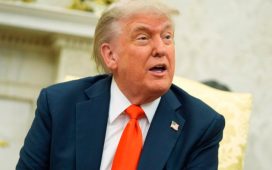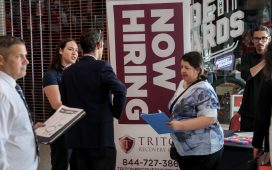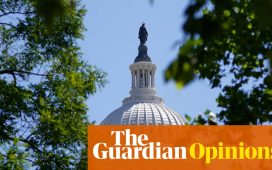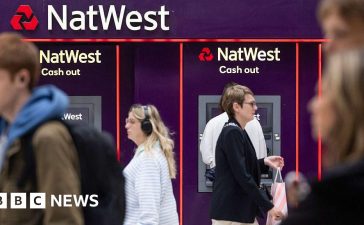Unlock the US Election Countdown newsletter for free
The stories that matter on money and politics in the race for the White House
The writer is chair of Rockefeller International. His new book is ‘What Went Wrong With Capitalism’
A key question still looming over the US election is why voters give Joe Biden so little credit for an apparently robust economic recovery. Many observers dismiss this as a “vibecession” — a case of bad “vibes” created by partisan media and divorced from reality — with only occasional apologies for how condescending this sounds.
While it is a fact that the US economy has of late been growing at a relatively rapid pace, normal people don’t live for quarterly GDP numbers, and their loss of faith in the system is a generational story. Ninety per cent of Americans born in the 1940s grew up to earn more than their parents, but that figure fell steadily to half of those born in 1980, and today barely more than a third of US adults say they are better off than mom and dad.
With public debt at record highs, nearly half of Americans say they will depend on government help in retirement — but most don’t trust the government to deliver promised benefits. Nearly seven in 10 say the economic and political system needs “major changes or to be torn down entirely”.
Biden came to office promising to be the biggest spender since the New Deal and is now running deficits appropriate to a Depression amid a full-employment recovery. This helps explain why current growth looks so good, and why trust in government continues a half century decline.
But this story goes beyond Biden and the US. While it can be argued that runaway government spending has added to the misery — the average inflation rate under Biden is higher than under any president since Jimmy Carter — public gloom about the economy has long been building across developed nations.
For decades, economic growth has been slowing with rising inequality, and now leader approval ratings in many western countries are at record lows. During his presidency, Donald Trump’s approval ratings were also dismal despite a record low “misery index.”
Partisanship does play a role. Members of both US parties are increasingly likely to feel pessimistic when a president of the other party is in power. Today, Republicans are the Americans most likely to say the economy is getting worse. Still, nearly six in 10 independents agree, and in at least one poll, Democrats give the economy even lower marks now than they did under Donald Trump. The bad vibes are not just a recent creation of partisan US media.
Over time, public frustration seems to build on a sense that the system is “rigged” against the average person. There are, as Biden’s defenders say, technical signs that inequality has fallen on his watch, but take again the long view: in 2022, the income share of the richest 1 per cent topped 20 per cent for the first time since the 1940s. That’s according to the (progressive) World Inequality Database, not Biden baiters.
Further, not only have the biggest American companies grown spectacularly relative to the rest, they are also growing more entrenched, as are their owners. Wealth is rising fastest not for the 1 per cent but for the top tycoons, all of whom are — not coincidentally — in Big Tech.
“The Great Gatsby Curve” shows that highly unequal societies tend also to be the least mobile, depriving capitalism of its inspiration: opportunity. By last year, political economist Blair Fix has shown, the wealth of the richest American was 50 times the median for the top 400 billionaires, up from 10 times in 1983. And even among billionaires, inequality begets immobility: top-50 billionaires are now roughly 40 per cent more likely to hold their place on the Forbes list from one year to the next than they were in the 1980s.
There is a deep sense that America is increasingly dominated by a wealthy elite. They can afford the $250,000 membership to new private restaurants, which are subdividing vibrant cities like New York and Miami by income class. They set the rules in Washington and own the preponderant share of stocks, bonds and assets of all kinds, so they prosper most when easy money policies drive up the value of those assets. And also benefit when the government steps in to bail out the markets, as it now always does at the first hint of trouble.
Most people, surveys show, would prefer a more modest salary than to live among richer neighbours, yet that in effect is how Americans have no choice but to live now — in the shadows of great wealth and power. It would be unfair to blame Biden alone for imbalances that have been widening for decades, but it is also short sighted to suggest, as many have, that his main challenge is to sell the good news harder. The flaws of capitalism in its current, twisted form are real. Better “messaging” won’t whisper the resulting frustrations away.





